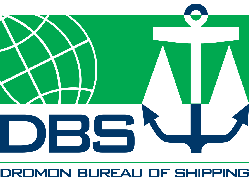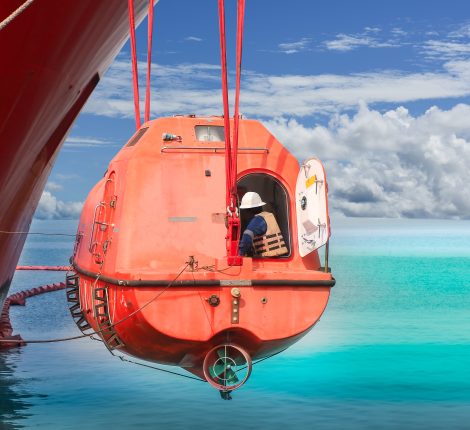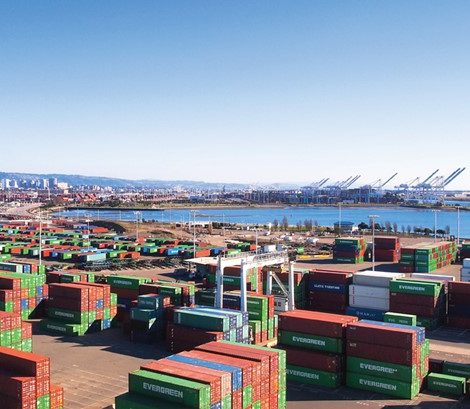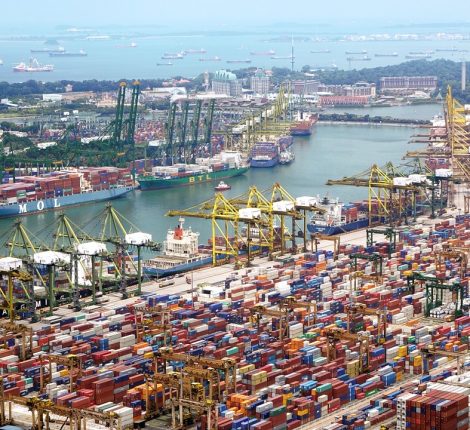- February 11, 2016
- 2016 , Circulars
- Comments : 0
Environmental Pollution Fines by Turkey
11 February 2016 | C16004
The Government of Turkey has announced new fines associated with environmental pollution in force from January 1, 2016
NOTICE TO
Ship Owners / Managers / Operators | Flag Administrations | Surveyors
Article 8 of the Turkish Environment Code describes the pollution prohibition as follows:
“It is prohibited, to introduce into, store in, transport to or remove from the receptor area any discharge or waste in such a way as to inflict damage on the environment or in a way directly or indirectly in contradiction with the standards and methods specified in the applicable regulations, or to engage in similar activities.”
Although it is clearly stated that the residue or poured material must have an effect inflicting damage on the environment, the authorities widely interpret the term of pollutant. The authorities have the right to determine the pollution and impose a fine as outlined on the table below. Taking samples, recording by photograph or by video are required in the relevant regulations; however, as per article 10.5, if the vessel has left the Turkish port and there is an actual impossibility, issuing a “determination minute” is sufficient to impose a fine giving an all-encompassing right to the authorities.
It is not required by the authorities to get the signature of master in order to issue a determination minute. If the master refuses to sign the relevant minutes or receiving the delivery of the said documents, the authorities can go on with the proceedings and as a result, the vessel will be detained until the payment of the fine. Nonetheless, there is an exceptional rule for the authorities not to deliver the samples to the masters, if they refuse to get them.
Rates of fines
The fines are imposed according to gross tonnage and type of the vessels as shown on the table below.
| Category A Petroleum products and derivatives discharged by tankers | |
| Up to 1,000 GT | 81.78 TRY per GT |
| Between 1,001 and 5,000 GT | Additional 20.40 TRY per GT |
| Over 5,000 GT | Additional 1.96 TRY per GT |
| Category B Dirty ballast discharged by tankers | |
| Up to 1,000 GT | 61.32 TRY per GT |
| Between 1,001 and 5,000 GT | Additional 12.23 TRY per GT |
| Over 5,000 GT | Additional 1.96 TRY per GT |
| Category C Garbage, sewage and grey water discharged by ships or other sea vessels | |
| Up to 1,000 GT | 40.87 TRY per GT |
| Between 1,001 and 5,000 GT | Additional 8.14 TRY per GT |
| Over 5,000 GT | Additional 1.96 TRY per GT |
As per article 23 of the Environment Code, in case the acts, which necessitated administrative fines to be imposed, are repeated within three years period from the date of such acts, the administrative fine shall be doubled for the first repeat and it shall be tripled for the second and following repeats.
Shipowners may appeal to the Administrative Court within 30 days of an imposed fine, although appealing does not mean that the vessel will be released from detention. Providing the authorities with evidence of best practice and comprehensive prevention measures will not mitigate a fine, even if the vessel argues that another ship was responsible. In such cases photographic or video evidence taken at the time of the incident may help, but this is not certain.
If a vessel is under repair in a Turkish shipyard or dry dock and pollution is caused by the negligence of the shipyard’s employees or agents, the vessel may still be fined. In the event of such a pollution incident occurring a Letter of Protest should immediately be issued from the vessel’s Owner or Master to the shipyard.
act now
Ship Owners / Managers / Operators must ensure that have implemented necessary measures to avoid these fines. Such measures may be:
- As far as is safe and practicable, deballasting operations should be avoided and if necessary only clean ballast water should be discharged.
- Overboard discharge valves should be closed and sealed shut.
- All deck scuppers should be plugged and sealed, and any gaps in the fish plate surrounding the deck should be closed.
- Hatch covers should not be hose tested.
- Deck pipelines and fire hoses should not be pressure tested.
- Fixed fire-fighting monitors, sprinklers and drenching systems should not be tested.
- The vessel’s decks and superstructure should not be washed down.
- Treated water from the sewage system should be transferred to a holding tank and should not be discharged until the vessel is out from Turkish waters.
- Grey water from sources such as the galley, laundry and bathrooms should be retained on board in a similar manner.
- Steps should be taken to prevent cargo residues, incinerator ash, garbage, cleaning agents and any other substances that may be construed as being pollutants from reaching the water.
- The vessel’s hull should not be scraped, chipped or painted while alongside or at anchor.





